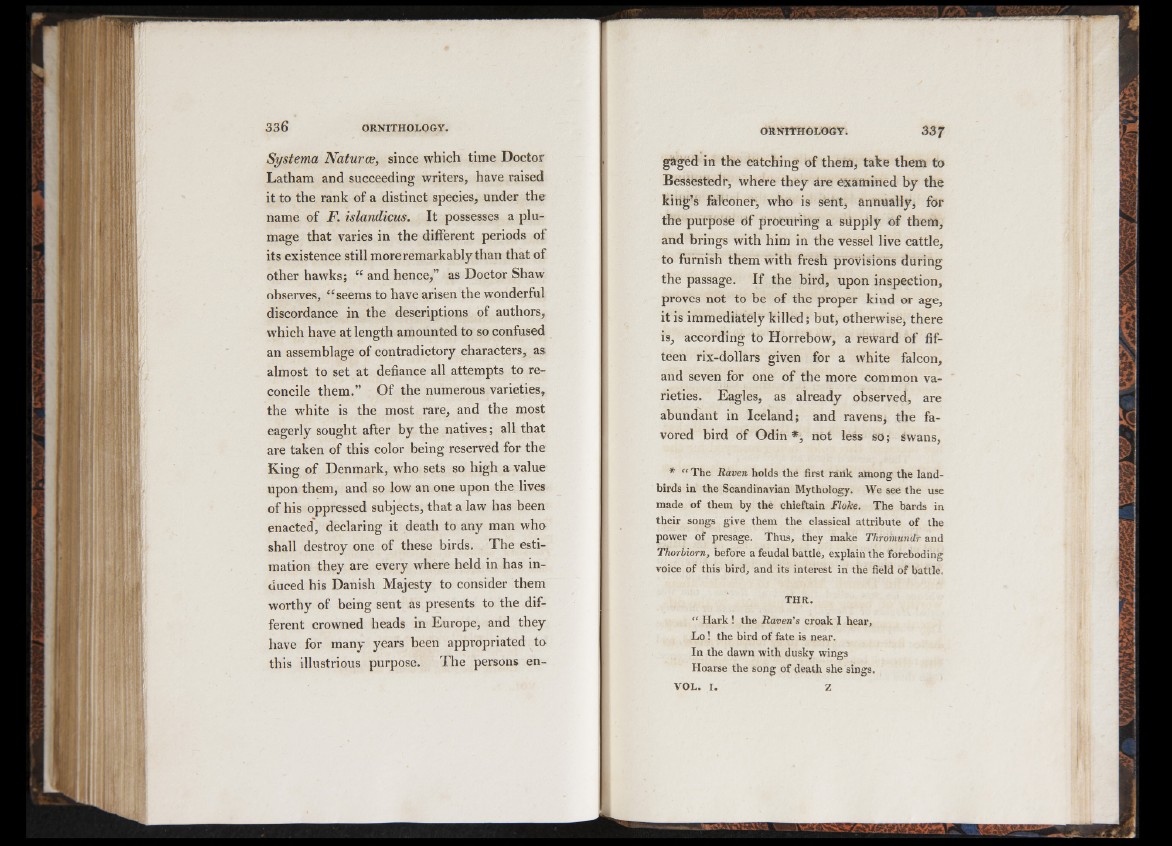
Systema Naturae, since which time Doctor
Latham and succeeding writers, have raised
it to the rank of a distinct species, under the
name of F. islandicus. It possesses a plumage
that varies in the different periods of
its existence still more remarkably than that of
other hawks; “ and hence,” as Doctor Shaw
observes, “ seems to have arisen the wonderful
discordance in the descriptions of authors,
which have at length amounted to so confused
an assemblage of contradictory characters, as
almost to set at defiance all attempts to reconcile
them.” Of the numerous varieties,
the white is the most rare, and the most
eagerly sought after by the natives; all that
are taken of this color being reserved for the
King of Denmark, w'ho sets so high a value
upon them, and so low an one upon the lives
of his oppressed subjects, that a law has been
enacted, declaring it death to any man who
shall destroy one of these birds. The estimation
they are every where held in has induced
his Danish Majesty to consider them
worthy of being sent as presents to the different
crowned heads in Europe, and they
have for many years been appropriated to
this illustrious purpose. The persons engaged
in the catching of them, take them to
Bessestedr, where they áre examined by the
kitig’s falconer; who is sènt, annually, for
the purpose df procuring a sdpply of them,
and brings with him in the vessel live cattle,
to furnish them with fresh provisions during
the passage. If the bird, upon inspection,
proves not to be of the proper kind or age,
it is immediately killed ; but, otherwise, there
is, according to Horrebòw, a reward of fifteen
rix-dollars given for a white falcon,
and seven for one of the more common varieties.
Eagles, as already observed, are
abundant in Iceland; and ravens, the favored
bird of Odin*, not less so; swans,
* “ The Raven holds the first raiik among the land-
birds in the Scandinavian Mythology. We see the use
made of them by thè chieftain Floke. The bards in
their songs give them the classical attribute of the
power of presage. Thus, they make Throfnundr and
Thorbiorn, before a feudal battle, explain the foreboding
voice of this bird, and its interest in the field of battle.
THR.
“ Hark ! the Raven’s croak I hear,
Lo ! the bird of fate is near.
In the dawn with dusky wings
Hoarse the song of death she sings.
VOL. I. Z